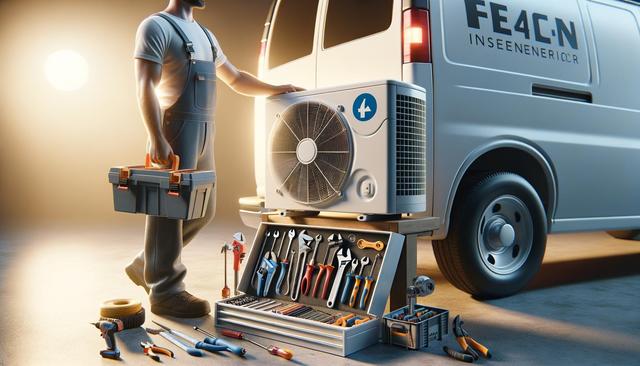Understanding the HVAC Installer’s Role
HVAC installers are responsible for installing heating, ventilation, and air conditioning systems in residential, commercial, and industrial buildings. Their work involves interpreting blueprints, determining system requirements, and ensuring installations meet safety and efficiency standards. This profession blends technical proficiency with problem-solving skills, as each installation can present unique challenges depending on building layout and system design. In addition to installing new systems, these professionals may also replace outdated units or retrofit existing setups to improve performance.
Being an HVAC installer requires a solid foundation in mechanical systems and a thorough understanding of air flow, temperature regulation, and energy efficiency. Installers must also comply with local building codes and industry regulations, which can vary depending on the region. Their work is critical in both new construction projects and system upgrades, making them an essential part of the building and construction industry.
Essential Skills and Training
To become an HVAC installer, individuals typically need to complete a formal training program or apprenticeship. These programs often cover topics such as system design, electrical components, and refrigerant handling. The development of hands-on skills is equally important, as much of the work involves direct interaction with equipment in varying environments. Some common traits of successful HVAC installers include:
- Strong mechanical aptitude
- Attention to detail
- Ability to read and interpret technical documents
- Excellent customer service skills
- Physical fitness for handling equipment and tight spaces
Licensing or certification may be required, depending on the locality. Many employers also prefer candidates who have received certification from recognized industry organizations. Ongoing education is important too, as HVAC technology continues to evolve with increasing emphasis on energy efficiency and smart climate control systems.
Daily Responsibilities and Work Environment
The daily tasks of an HVAC installer can vary widely depending on the job site and the type of system being installed. In general, the work may include:
- Assembling and mounting HVAC units
- Connecting electrical wiring and controls
- Testing systems for proper operation
- Troubleshooting and making necessary adjustments
- Maintaining job site safety and cleanliness
Installers often work in a variety of environments, from private homes to large commercial buildings. The job can require working in tight spaces, at heights, or in outdoor conditions. Despite these challenges, many find the work rewarding due to the tangible impact it has on comfort and energy efficiency. Coordination with other trades, such as electricians and plumbers, is also common, especially on larger projects.
Career Outlook and Opportunities
The demand for HVAC installers remains steady, driven by new construction, aging infrastructure, and increasing awareness of indoor air quality. As more buildings aim to meet higher energy efficiency standards, skilled HVAC professionals are needed to install and maintain modern systems. Career advancement opportunities exist for those who gain experience and additional certifications. Some may move into supervisory roles, while others may specialize in particular types of systems or transition into system design and consulting.
Those interested in entrepreneurship may even establish their own HVAC installation businesses. The industry also offers opportunities to branch into related fields such as HVAC service and repair, energy auditing, or sales of heating and cooling systems. The versatility and demand for HVAC skills make it a viable long-term career path.
Challenges and Rewards in the Field
Like any skilled trade, the HVAC installation field comes with its own set of challenges. Physical demands, varying job site conditions, and the need for continuous learning can be demanding. However, the rewards can be significant — both in terms of job satisfaction and financial stability. Many HVAC installers take pride in knowing their work directly contributes to the comfort and safety of building occupants.
The ability to work independently, solve problems on the spot, and see the results of one’s labor makes this profession appealing to many. Additionally, the consistent need for HVAC services provides a level of job security uncommon in many other fields. With a commitment to quality and ongoing skill development, HVAC installation can offer a dynamic and fulfilling career.
Conclusion: Why Consider a Career as an HVAC Installer?
For those who enjoy working with their hands, solving technical challenges, and making a visible impact, becoming an HVAC installer can be a rewarding choice. The role offers a mix of stability, variety, and opportunities for growth. Whether entering the field for the first time or considering a career change, HVAC installation presents a practical and promising path supported by industry demand and evolving technology.







